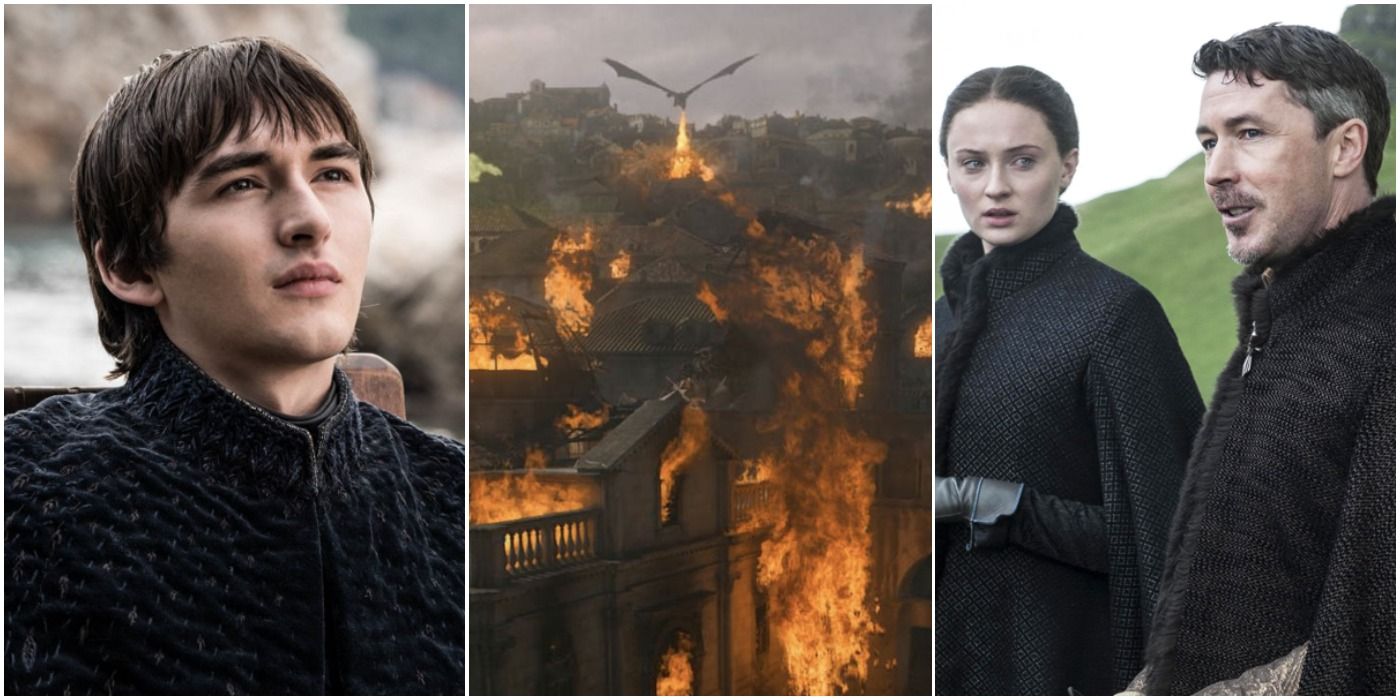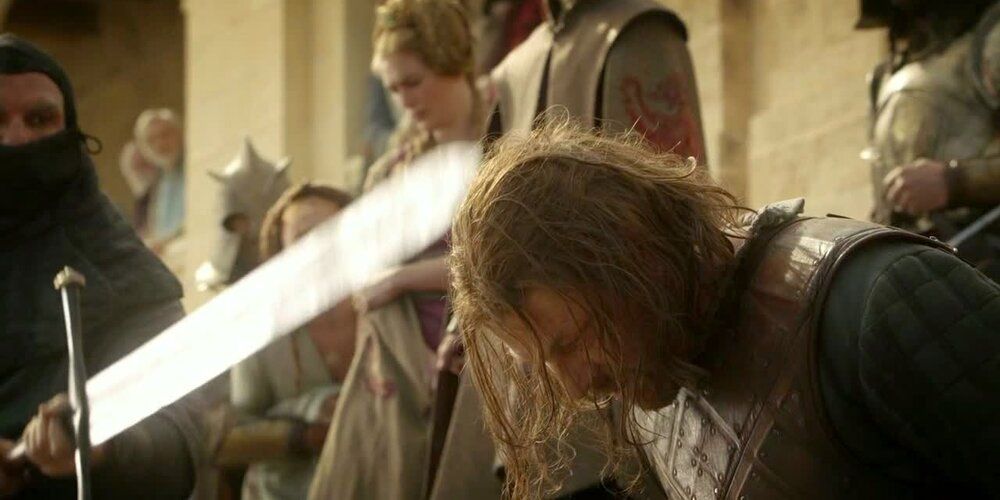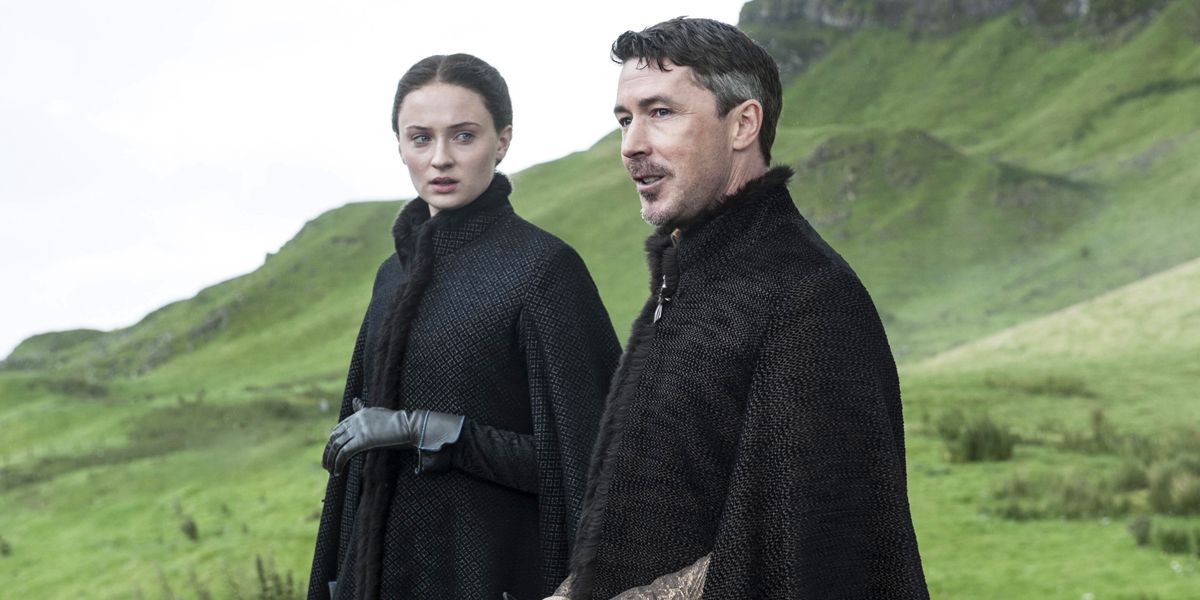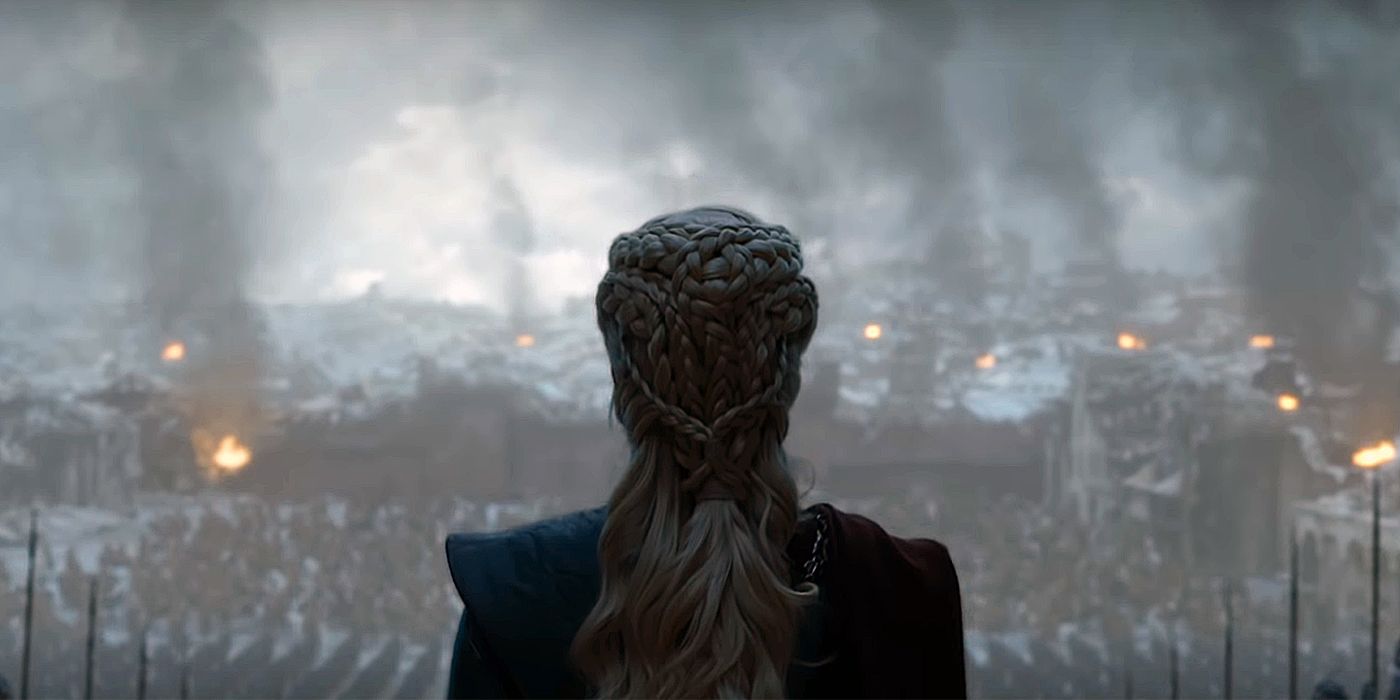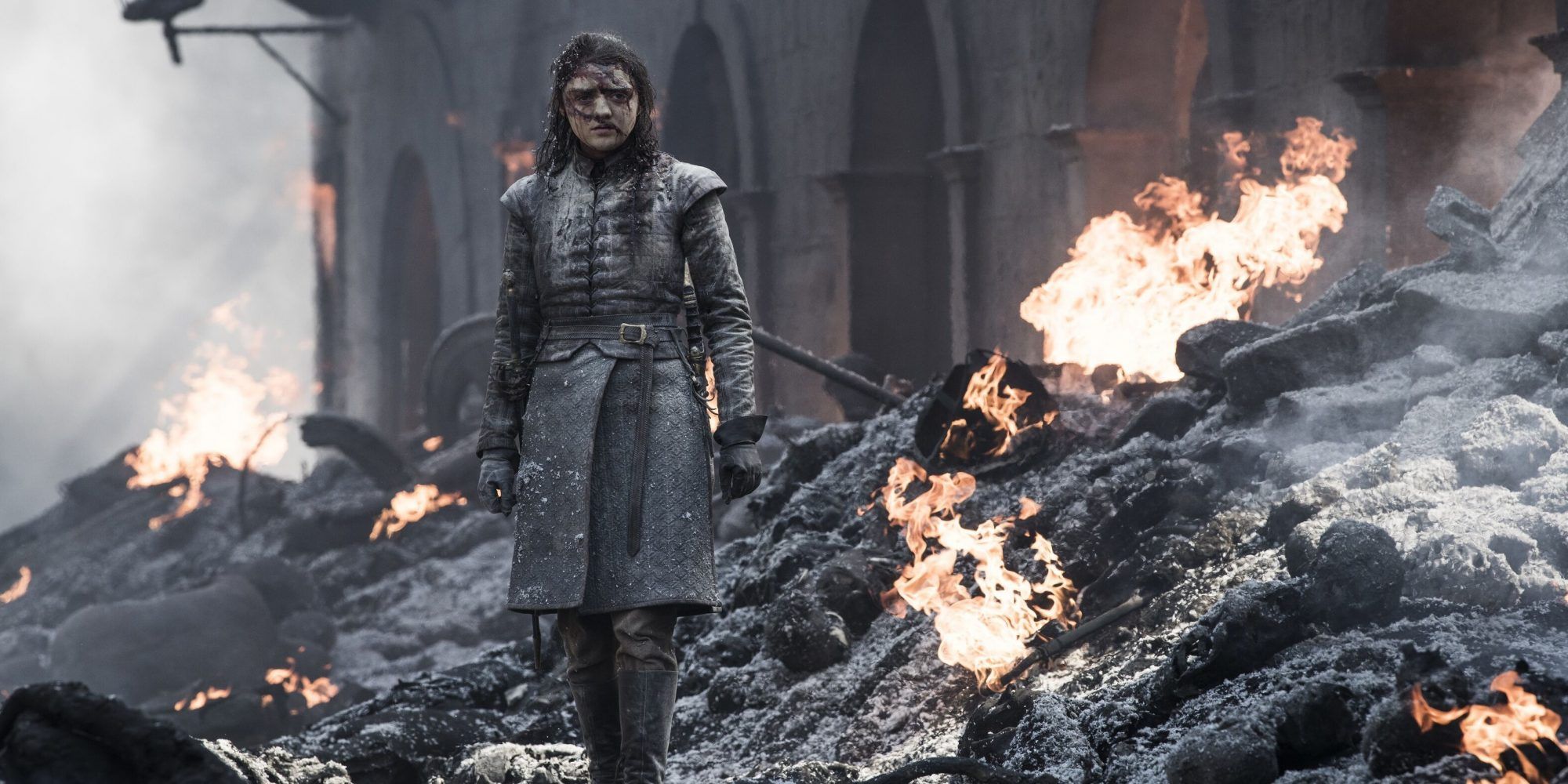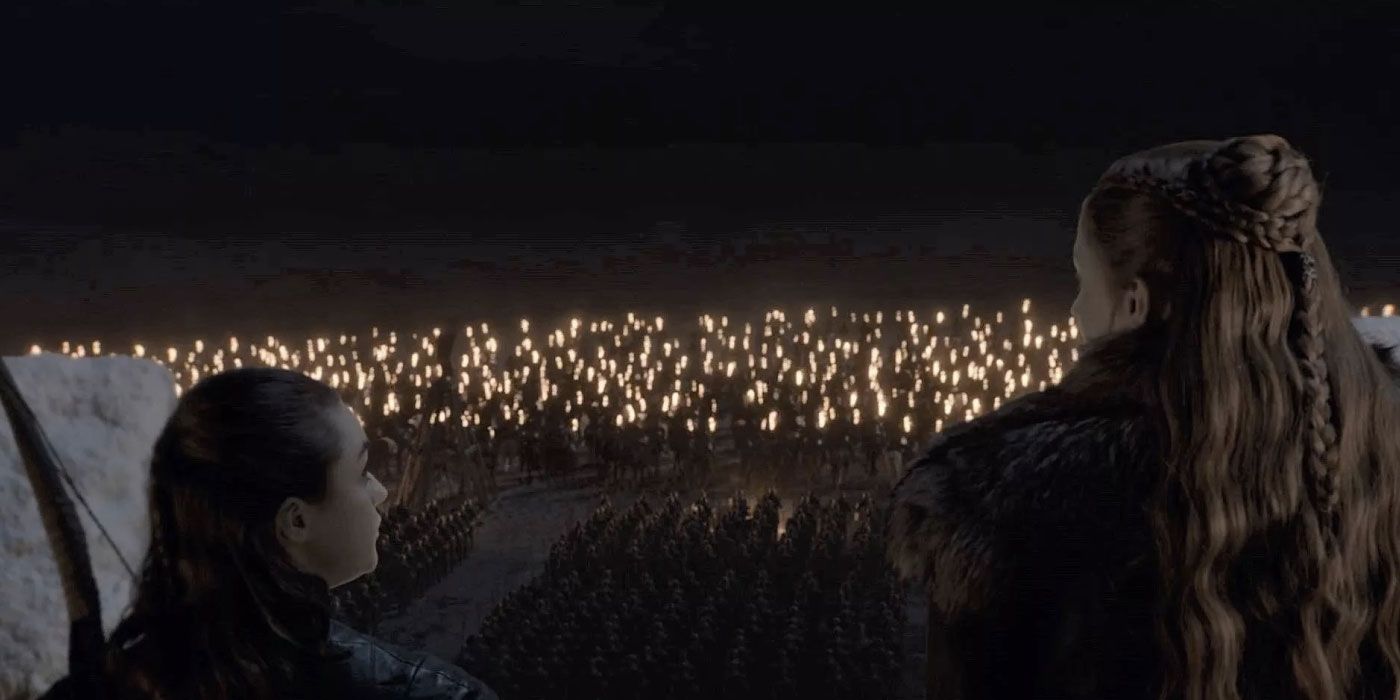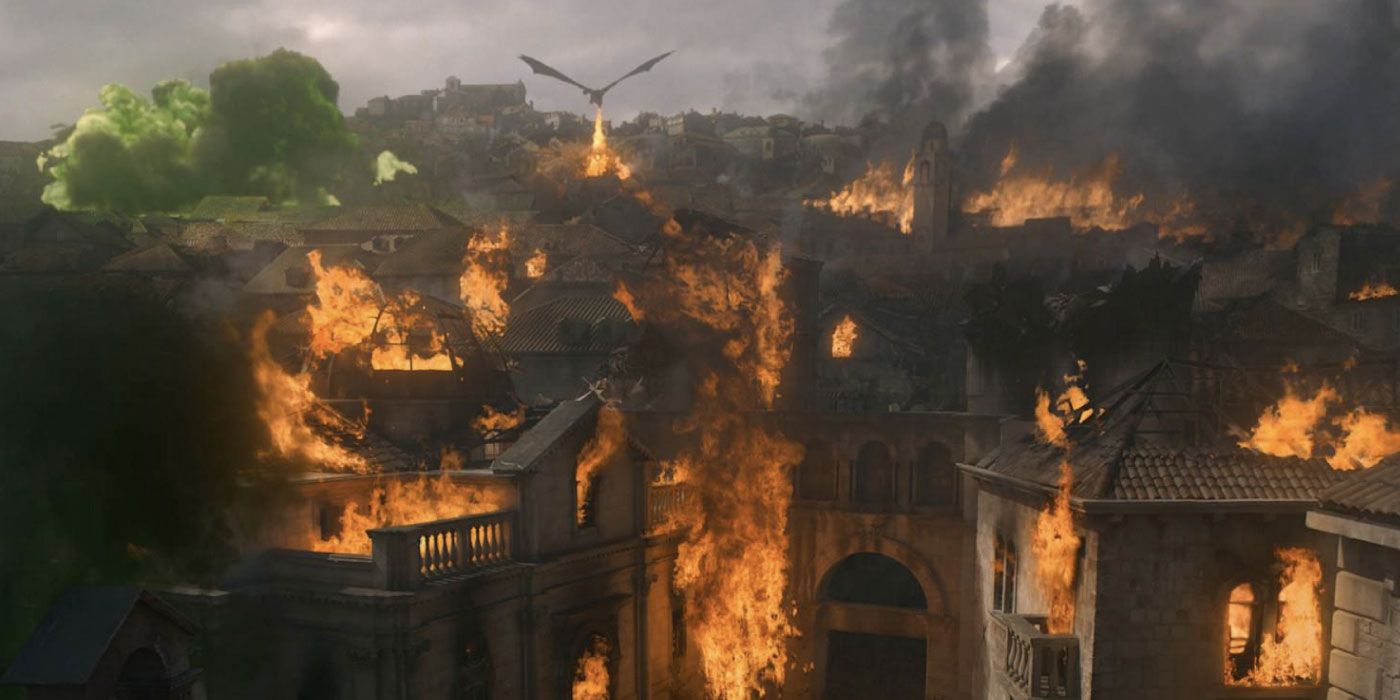Upon release back in 2011, HBO's Game Of Thrones was a huge hit. GOT was lauded by both fans and critics alike for its grand setting, dynamic characters, and high production value. It would go on to win nearly 60 Emmy awards over the course of its eight season run, more than any other scripted series on television.
However, the final two seasons of Game Of Thrones soured many fans, criticized for rushed conclusions to certain characters' storylines. Despite its overall success, there were hints in the second half of Game Of Thrones' run that all was not well in Westeros.
8 They Ran Out Of Source Material
One of the reasons for the success of Game Of Thrones' early seasons was the ability to bring the source material to life, satisfying fans of the books. The TV plot was also accessible for those not familiar with A Song Of Ice And Fire.
Around the fifth season, Game Of Thrones began to pass by the story told in the books, and the creative team had to rely only on the overview given to them by author George R.R. Martin. While they were able to do a lot with what they had, it was at this point that the cracks began to show.
7 The Producers Were Ready To Move On To Other Projects
Nearing when the final season aired, there was speculation that producers D.B. Weiss and David Benioff were shifting their focus to new projects. Namely, an unnamed Star Wars trilogy and later, a multi-million dollar deal with Netflix.
While it was never confirmed, the rushed nature of the final two seasons did little to dampen the rumors. The creative pair that brought the initial amazing seasons suddenly found themselves facing plenty of criticism as the final season aired.
6 Game Of Thrones Started Playing Fast And Loose With Continuity
One of the most important factors in George R.R. Martin's vision of Game Of Thrones was to bring a certain level of realism to the fantasy genre. The first seasons of Game Of Thrones held true to that, making a series more akin to historical fiction than fantasy in some respects.
That adherence to realism began to fray in the later seasons, as GOT hastened to bring its multitude of wide-ranging stories and plotlines to some cohesive conclusion. This necessitated playing fast and loose with certain elements such as travel times - giving rise to memes such as the 'teleporting Petyr Baelish.'
5 Characters Began To Behave In Ways Contrary To Fans Expectations
It goes without saying that creators are not beholden to fufill the wide range of expectations of all their fans. In fact, creating a show as exciting and full of unexpected turns such as Game Of Thrones requires that they do not.
That said, diverging too far from plotlines and character traits that had already been established in earlier seasons comes with a certain level of risk. The conclusion to some of the main characters' stories left many fans bewildered, especially as there was less time in the final seasons to properly foreshadow these events.
4 The Final Seasons Had Fewer Episodes
Game Of Thrones' first seasons typically featured 12 episodes per season, a reasonable number for the large cast and number of storylines. The creators had plenty of time to lead to some of the most exciting and shocking moments of Game Of Thrones.
This was not the case in the final two seasons, comprising of a total of 13 episodes between the two. This contributed greatly to the rushed finale, and was a large factor in many of the issues fans had with the last seasons.
3 The Characters Choices Stop Being Meaningful
Early on in Game Of Thrones, especially after the shocking death of Ned Stark, fans were kept on the edge of their seat in suspense. This excitement kept people tuning in, eagerly anticipating and dreading the fate of their favorite characters.
While the final seasons didn't fully move away from this, the actions of the characters lacked the same meaning they had in earlier seasons. Just like when Robb Stark's choice to spurn his ally's marriage offer led to the end of his campaign, as well as his life.
2 Too Many Storylines Needed To Be Tied Up In Too Little Time
Game Of Thrones is certainly one of the most ambitious shows ever produced. Game Of Thrones had a huge ensemble cast (each with their own detailed story) and dozens of locations in Westeros and beyond. The grand scope of Game Of Thrones was one of the biggest draws for fans who were taken in by the depth of the world they had created.
This came with a downside - these storylines needed to be brought together by a finale that came much sooner than many expected. Not every character received the kind of satisfying conclusion fans were hoping for, forcing some liberties to be taken.
1 The Twists Lacked The Impact Of The First Seasons
The first few seasons of Game Of Thrones featured some of the most shocking moments of television. Ned Stark's execution was just a warm-up for the eventual Red Wedding. Cersei's revenge against the High Sparrow and House Tyrell in The Winds Of Winter brought the sixth season to an explosive conclusion.
The later seasons featured some shocking moments, but few with the same impact. While the Night King taking control of one of Daenarys' dragons was a great moment in Game Of Thrones, some scenes felt forced. While never predictable, the final seasons of Game Of Thrones weren't always able to match the sheer levels of tension fans experienced early on.

